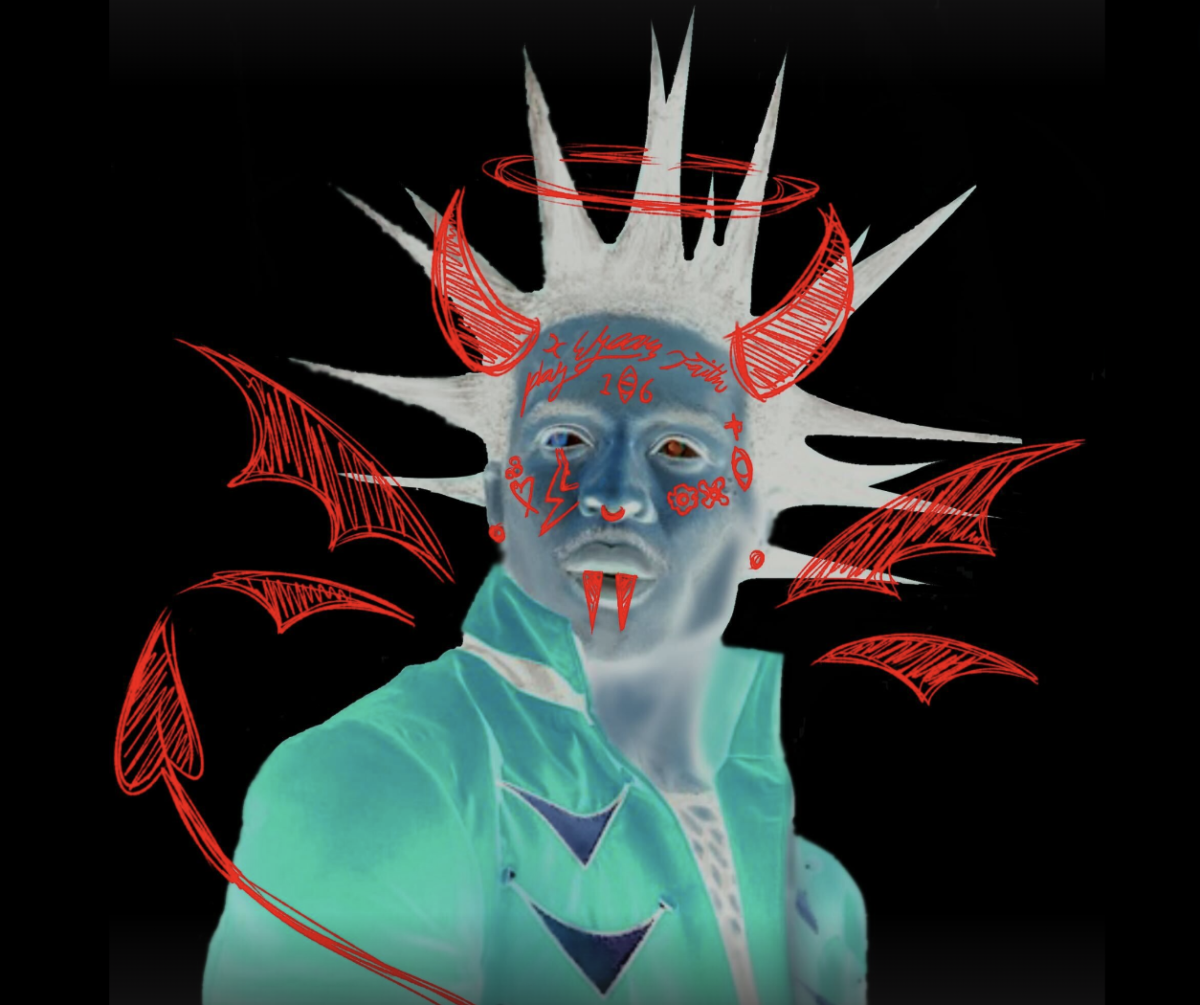“I make a city girl believe in Satan” (For Me, Lil Uzi Vert)
After headlining the 2023 international hip hop music festival “Rolling Loud” in California, rapper Symere Bysil Woods, more commonly known as Lil Uzi Vert, faced severe criticism for allegedly promoting Satanism. The artist’s performance, which included visually jarring images, such as photos of weapons and people covered in blood and lyrical references to Satan, led to heated debates among fans and critics. While fans defended the rapper’s performance, others believed the act was offensive and inappropriate.
Junior Shulang Zhang has been a fan of hip-hop and rap since seventh grade when she was introduced to rapper Lil Uzi Vert, even going to their recent concert at the Bill Graham Civic Auditorium on Wednesday, Nov. 15. While she considers herself a fan, Zhang is aware of the controversy surrounding Woods, including the theory that their stage name was created to sound like Lucifer, the fallen angel. However, Zhang is not bothered by this controversy as she believes it is crucial to separate an artist’s personal life and beliefs from their artistry.
“I don’t really care about their controversy because I don’t focus on Lil Uzi themselves, I focus on their music,” Zhang said. “I don’t believe in any religion, so the demonic aspects of their music doesn’t affect me at all. I can understand that some people are speaking up about it because it’s against their religion, but in that case, I think what they can do is simply avoid listening to his music.”
On the contrary, sophomore Jenna Bergendahl doesn’t support the appearance of demonic elements in songs. Bergendahl feels that much of today’s music carries a negative theme, with artists often using darker emotions to resonate with their audiences. Coming from a religious background, she expresses concern about the use of Satanism in mainstream music. Bergendahl believes that artists should include more uplifting and hopeful themes in their music, in order to promote a positive outlook on life.
“They’re emphasizing the bad in the world. It’s not good to listen to music like that because it is not good for our minds to be filled up with negative ideas. If we focus on the bad, our lives are gonna be more negative, but if we focus on the good, our lives are gonna be more positive.”
18% of MVHS students and staff agree with Bergendahl that the presence of demonic themes in modern music is disturbing. Rather than focusing on aesthetics, English teacher Derek Lu seeks out the meaning and messages in the music he consumes. Instead of basing his opinions on the visuals of music videos and album covers, Lu focuses more on the music’s lyrical message. He compares modern music to older music, acknowledging the provocative turn that modern music has taken on from controversial moments of his favorite ‘90s hip hop and R&B. However, Lu doesn’t believe that these artists are demonic or have “sold their soul.” Instead, he defends the risks they take with their artistry, describing today’s pop music as a genre that isn’t willing to take risks and be bold.
“I think it’s just something that is appealing to the pop mainstream because I think a lot of what’s dominant in pop right now is really cookie cutter,” Lu said. “Taylor Swift just dominates everything, or K-Pop, so mainstream American pop is a little lost. For artists like Doja Cat or Sam Smith to get attention, they have to really go left field and be willing to push the buttons.”
These demonic themes transcend the genre of hip-hop. Whether it be in an alternative pop song with Billie Eilish’s song “All The Good Girls Go To Hell,” or in the rap genre with Lil Uzi Vert’s single “Demon High,” Satanic and demonic themes have become more prevalent in mainstream music. Although artists have been using darker themes to express mature concepts, not only demonic themes, like depression or alcoholism in their music for a long time, it is only in recent years that articles and videos criticizing artists’ treatment of these themes have appeared.
Zhang finds the growing commentary on artists’ music to be normal and even welcomed when it comes to more controversial situations. She asserts that by making themselves a public figure, artists are actively exposing themselves to the public’s opinions.
“Fans have a right to say their thoughts about anything,” Zhang said. “I mean, public figures are made for us to discuss, right? In my opinion, public figures actually want people to discuss them so that they can earn more money because, for them, influence equates to money.”
Lu believes that while Satanic references are prevalent in modern music, it does not directly associate artists with Satanism. Bergendahl claims that while it does not necessarily mean that the artists are bad people with bad intentions, it still portrays a negative message for listeners.
“I believe that we shouldn’t focus on the bad,” Bergendahl said. “I’m a Christian, but that doesn’t necessarily mean we have to listen to only Christian or positive music. However, it is encouraged because listening to affirming songs, as it allows for a more positive outlook on life and to be more open-minded.”














